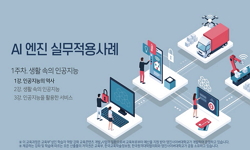AI가 발전을 거듭할수록 인간의 편의를 위한 AI의 사용 범위가 확장되고 있으나 이에 맞는 윤리적 문제에 대한 논의와 연구는 충분히 이루어지지 않고 있다. 본 연구는 AI와 관련된 윤리적 이...
http://chineseinput.net/에서 pinyin(병음)방식으로 중국어를 변환할 수 있습니다.
변환된 중국어를 복사하여 사용하시면 됩니다.
- 中文 을 입력하시려면 zhongwen을 입력하시고 space를누르시면됩니다.
- 北京 을 입력하시려면 beijing을 입력하시고 space를 누르시면 됩니다.

AI서비스 실패에 대한 책임지각: 도덕적 기반의 조절효과 = Perception of Responsibility for AI Service Failures: The Moderating Effect of Moral Foundations
한글로보기https://www.riss.kr/link?id=A109733487
- 저자
- 발행기관
- 학술지명
- 권호사항
-
발행연도
2025
-
작성언어
Korean
- 주제어
-
등재정보
KCI등재
-
자료형태
학술저널
-
수록면
245-268(24쪽)
- DOI식별코드
- 제공처
-
0
상세조회 -
0
다운로드
부가정보
국문 초록 (Abstract)
AI가 발전을 거듭할수록 인간의 편의를 위한 AI의 사용 범위가 확장되고 있으나 이에 맞는 윤리적 문제에 대한 논의와 연구는 충분히 이루어지지 않고 있다. 본 연구는 AI와 관련된 윤리적 이슈 중 AI가 책임의 주체가 될 수 있는지, 그리고 어떤 양상으로 책임을 지우는지를 알아보고자 하였다. 구체적으로, 인간 서비스와 비교하여 AI가 제공한 서비스 실패에 대해 사람들이 책임성을 어떻게 느끼는지를 책임 주체별로 확인하고 도덕적 기반의 조절 효과를 알아보았다. 심리치료 실패 시나리오를 제공한 연구 1의 결과, 서비스 제공자(AI/인간)에 따라 책임 주체(서비스 제공자, 관련 기관, 사용자)별 책임 정도에 대한 지각이 달라짐을 확인하였다. 또한, 도덕적 기반 중 공평함과 규범존중이 서비스 제공자와 사용자 책임지각 간의 관계를 조절하는 것으로 나타났다. 구체적으로, 공평함과 규범존중의 가치를 낮게 평가하는 경우에만 인간의 치료실패보다 AI에 의한 치료실패에서 사용자의 책임을 적게 지각하는 것으로 나타났다. 정부의 세무업무 실패 사례를 제시한 연구 2의 결과, 정부, 서비스 제공자, 사용자 순으로 책임을 높게 지각하였는데, 인간보다 AI에 의해 세무 서비스 실패가 발생했을 경우, 서비스 제공자의 책임은 낮게, 정부의 책임은 높게 평가하는 것으로 나타났다. 또한 도덕적 기반 중 규범존중의 조절효과가 나타났는데, 규범존중의 가치를 낮게 지각하는 경우 인간보다 AI조건에서 서비스 제공자의 책임을 낮게 평가하였다. 이러한 결과는 AI가 도덕적 책임의 주체가 될 수 있는지와 도덕적 판단에서 나타나는 차이를 이해하는데 기여할 것으로 기대된다. 마지막으로 본 연구의 한계점과 시사점을 논의하였다.
다국어 초록 (Multilingual Abstract)
As AI usage is expanding for human convenience, ethical discussions on this issue remain insufficient. This study examined whether AI can bear responsibility and how people perceive it to take responsibility. In specific, by comparing AI service failu...
As AI usage is expanding for human convenience, ethical discussions on this issue remain insufficient. This study examined whether AI can bear responsibility and how people perceive it to take responsibility. In specific, by comparing AI service failures to those of humans, we focused on how the perceived responsibility is for each agent (service provider, organization, or user) and tested the moderating role of moral foundations. In Study 1, where a psychological treatment failure scenario was given, results showed that according to the service provider (AI or human) responsibility perceptions of the service provider, organization, and user varied. Fairness and respect for norms moderated the relationship of service provider type and user responsibility perception. In specific, when these values were rated low, users felt less responsible for AI failures than human failures. Study 2, involving a scenario on the government tax failures, found that responsibility was attributed the highest for the government, followed by service providers and users. AI failures led to lower provider responsibility and higher government responsibility. Respect for norms also showed moderationed perceptions, with lower values further reducing the perception of provider responsibility under AI conditions compared to that of human. These findings contribute to the understanding of whether AI can be held morally responsible and how moral judgment differs depending on the nature of the agent. Limitations and implications of the study are also discussed.
동일학술지(권/호) 다른 논문
-
한국판 인공지능에 대한 태도 척도(ATTARI-12)의 타당화: 긍․부정 문항 방법효과에 따른 쌍요인 모형 검증
- 한국문화및사회문제심리학회
- 이선영
- 2025
- KCI등재
-
한국의 20-30대 마약 사용자의 켐섹스(Chemsex) 경험에 관한 질적 연구
- 한국문화및사회문제심리학회
- 임한나
- 2025
- KCI등재
-
- 한국문화및사회문제심리학회
- 남정훈
- 2025
- KCI등재
-
귀국 청년의 문화적 소속감의 부재와 외로움의 관계: 재문화충격과 정서인식명확성의 순차적 매개효과
- 한국문화및사회문제심리학회
- 김채은
- 2025
- KCI등재




 ScienceON
ScienceON






